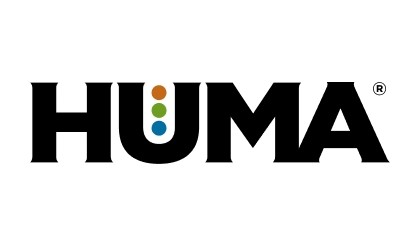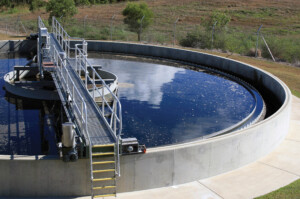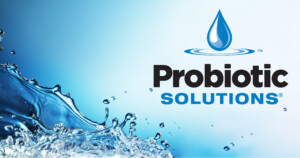Full Case Study
Introduction: A remediation company in Arizona was selected to complete a Remedial Action Plan for soils contaminated with crude oil located in an oil production field in Texas. The crude oil contaminated soil was generated from storage tank bottom materials which had been removed from several oil recovery storage tank batteries located within the oil field storage facility. The soils were store on-site for approximately five years (with periodic addition of materials to the storage pile). Bioremediation probiotic technology was chosen using Probiotic Solutions® products (BIO ENERGIZER®, MICATROL® and NUTRIPLEX®) for the pilot study clean-up and mitigation of the petroleum contaminated soil materials.
Sample Verification: During the preparation of the tank-bottom materials treatment, a composite sample was obtained and sent to a certified laboratory for analytical verification. The investigation revealed total petroleum hydrocarbon (TPH) levels at 75,000 parts per million (ppm). The composite sample also reported barium levels at 1,750 ppm. cadmium at 0.4 ppm, chromium at 7.5 ppm, mercury at 0.1 ppm, and lead levels at 49.9 ppm. BTEX and MTBE were not tested. All Environmental Protection Agency (EPA) analyses were conducted by a certified lab in Arizona. Samples were obtained in accordance with EPA documents SW- 846 “Test Methods for Evaluating Solid Waste” and “Methods of Chemical Analysis for Water and Wastewater. Initial investigations were reported using EPA methods 418.1 modified for total recoverable petroleum hydrocarbons (TRPH). Metals were reported using an EPA method for EP tox metals by total digestion analysis. The soils were heavily contaminated with highly saturated crude oil. The soil in the storage area exhibited cement like characteristics on the direct surface of the materials, but below this one inch hard crust was a soil that displayed a wet cement like soil. The material was highly liquefied and had no solid texture.
The contaminated material was inoculated only twice during a one month period. The soil was inoculated by surface application to guarantee that the probiotic products and water were applied efficiently to the soil materials. The nutrients (NUTRIPLEX®) and other probiotic complexes (BIO ENERGIZER® & MICATROL®) were pre-mixed in a 500 gallon tank and were then applied under high pressure into and onto the soil. The mixture was added to the soil in an effort to release the saturated oil complexes, detoxify the materials for microbial proliferation, and to supply adequate nutrients to the soil for microbial assimilation. The saturated soils were effectively treated and the soil became more manageable and workable as the project progressed. The probiotic complexes which were utilized seemed to have the best effect on the soil. Probiotic complexes actually rearrange the structure of petroleum hydrocarbons and will detoxify harmful environments that have been affected by petroleum contaminants. This was readily noticeable and very beneficial in the treatment procedures. The petroleum contamination became more available for microbial degradation once freed from the saturated tank bottom materials.
Related Posts

Case Study: Biological Remediation of Crude Oil Contaminated Soil
Full Case Study Introduction: A remediation company in Arizona was selected to complete a Remedial Action Plan for soils contaminated with crude oil located in an oil production field in Texas. The crude oil contaminated soil was generated from storage tank bottom materials which had been removed from several oil recovery storage tank batteries located...

Bio Energizer, Micatrol & Bio Feed Reduce COD and Stabilize Wastewater Treatment for Plastic Producer
A plastic manufacturer in Taiwan needed a new process to efficiently treat elevated incoming chemical oxygen demand (COD) to comply with stringent EPA regulations for effluent discharge. The plant is an activated sludge treatment system with an influent of approximately 2,000 cubic meters per day (CMD) which is equivalent to approximately 530,000 gallons per day...

BIO ENERGIZER® Reduces Sludge 45% In One Year, Saves Municipal Plant $6 Million In Dredging Costs
by Heather Jennings, PS In this study, a one-year bioremediation plan featuring Bio Energizer® was implemented for a municipal wastewater treatment facility with 2 primary lagoons in which sludge depths had reached 5–7 feet. The lagoons were at risk of upset and wastewater processing capacity was reduced. Bio Energizer® was added via peristaltic pump to...

